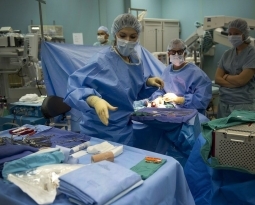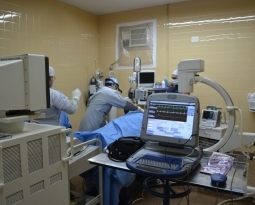Vermont Patent of the Month – February 2022
Paper production starts with processing wood chips to create cellulosic fibers. These wood chips must be mechanically and/or chemically processed to liberate fibers from the fiber/lignin structure. They are then treated and refined before being turned into paper. As an effort to be more sustainable, many paper processing plants have tried to integrate recycled fibers. Unfortunately, since these fibers have already been previously treated, they have reduced structural integrity.
Pulmac Systems International, Inc., a global provider of equipment for fiber testing, monitoring, and diagnostic tools in the pulp and paper industry, has recently developed a method to prepare these recycled fibers while maintaining their integrity. With this method, paper production can be both sustainable and reliable.
Pulmac Systems realized paper production processes needed improvements in the blending process rather than the refining process. This insight led them to design a fractionation system which better separated the fibers for targeted refinement, to create an improved final blend. This method improves significantly on the traditional process, resulting in improved drainage and cost reductions during fabrication.
The process involves separating the recycled fibers into two main categories – short and long fibers. Separation is done by a fractionation system which can separate based on a single property (i.e. length, density etc.). The short fiber portion is then further split, separating out the refinable portion. This portion is then processed into a glue pulp which is further refined. These three groups are then recombined in specific ratios and blended into an optimal slurry, depending on the desired paper product. The slurry can then be processed by a paper machine as usual.
Are you developing new technology for an existing application? Did you know your development work could be eligible for the R&D Tax Credit and you can receive up to 14% back on your expenses? Even if your development isn’t successful your work may still qualify for R&D credits (i.e. you don’t need to have a patent to qualify). To find out more, please contact a Swanson Reed R&D Specialist today or check out our free online eligibility test.
Who We Are:
Swanson Reed is one of the U.S.’ largest Specialist R&D tax advisory firms. We manage all facets of the R&D tax credit program, from claim preparation and audit compliance to claim disputes.
Swanson Reed regularly hosts free webinars and provides free IRS CE and CPE credits for CPAs. For more information please visit us at www.swansonreed.com/webinars or contact your usual Swanson Reed representative.

















